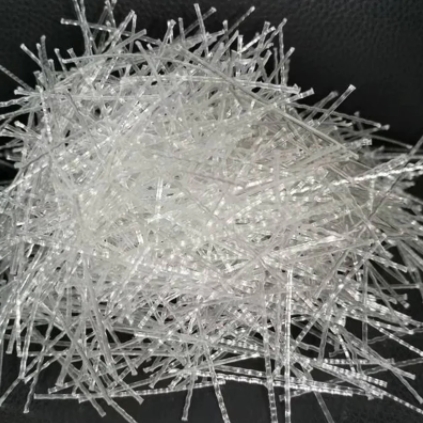Jun. 20, 2023
Construction & Real Estate
Polypropylene fiber, a versatile synthetic material, has gained significant popularity in various industries due to its unique characteristics and wide range of applications. This article aims to explore the functions of polypropylene fiber and shed light on its diverse uses in different fields.

Strength and Durability:
One of the primary functions of polypropylene fiber is its exceptional strength and durability. The fiber exhibits a high tensile strength, making it an ideal choice for applications that require resistance to wear and tear. It can withstand heavy loads, making it suitable for use in products like ropes, cables, and geotextiles used in construction projects.
Moisture Management:
Polypropylene fiber possesses excellent moisture management properties. It is hydrophobic, meaning it repels water and does not absorb moisture. This characteristic makes it highly suitable for applications in the textile industry, such as sportswear, outdoor clothing, and bedding. Polypropylene fiber wicks away moisture from the body, keeping the wearer dry and comfortable.
Thermal Insulation:
Polypropylene fiber offers excellent thermal insulation properties. It acts as an effective barrier against heat transfer, making it useful in insulation materials for buildings, automotive interiors, and cold weather clothing. The fiber's ability to trap air within its structure enhances its insulation capabilities, providing warmth and comfort in various applications.
Chemical Resistance:
Polypropylene fiber is resistant to many chemicals, acids, and alkalis, making it suitable for applications where exposure to harsh substances is expected. This resistance makes it an ideal choice for use in filtration systems, industrial filters, and protective clothing for workers in chemical and hazardous environments.
Lightweight and Non-allergenic:
Another notable function of polypropylene fiber is its lightweight nature, which contributes to the comfort of the end products. This quality is particularly desirable in applications such as textiles, where the weight of the material can impact the overall user experience. Additionally, polypropylene fiber is non-allergenic, making it suitable for individuals with sensitivities or allergies.
Mold and Mildew Resistance:
Polypropylene fiber possesses inherent mold and mildew resistance, making it highly suitable for applications in humid environments or areas prone to moisture. This feature is beneficial in products such as carpets, upholstery, and outdoor furniture, where resistance to fungal growth is essential for maintaining hygiene and prolonging the product's lifespan.
Conclusion:
Polypropylene fiber offers a wide range of functions and benefits across various industries. Its strength, moisture management properties, thermal insulation capabilities, chemical resistance, lightweight nature, and mold resistance make it a versatile and reliable choice for numerous applications. As technology advances, further innovations in polypropylene fiber are likely, expanding its functionalities and opening new possibilities in different sectors.
Previous: Vinyl Vs Hardwood Sports Flooring
Next: Expandable Container House: A Portable and Versatile Living Solution
If you are interested in sending in a Guest Blogger Submission,welcome to write for us!
All Comments ( 0 )